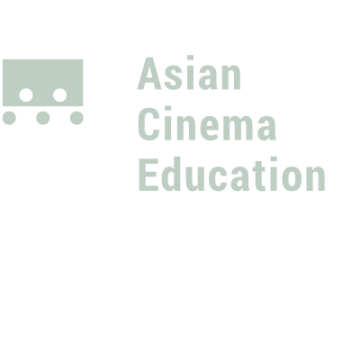Asian and Chinese Cinema
Spring 2024, spring 2025
Application period: Read more about the application process!
Language: English
Level: advanced
Time: 1.2.-31.5. 2024
1) Asian Cinema Through a Global Lens (2 ECTS)
2) Introduction to the Cinemas of Greater China (3 ECTS)
Students can take both courses or choose to complete one of them.
Organizer: Faculty of Information Technology and Communication Sciences Tampere University
1) Asian Cinema Through a Global Lens (2 ECTS)
The course introduces students to the classic and exemplary contemporary films from the Asian region, particularly India, Japan, Korea, and the Philippines. We look at these cinematic worlds of Asia through a global lens, comparing what we find there with standard readings of western art-house cinema and Hollywood. In this process the course introduces several theoretical methods to screen analysis. As the course moves across different cinemas of Asia we participate in a process of cognitive mapping and comparative analysis that will underscore these countries’ different positions in, and their relation to, the world system. The course will analyze classics and exemplary contemporary work and how the effects of globalization in the narrative and story, but also in the film form itself, will be influenced by global cinematic, commodity, and cultural flows.
Learning Objectives: After the course students are 1) familiar with key texts and fundamentals of several different Asian cinemas in a global context. 2) Understand the social processes and context surrounding the production, circulation, critique, consumption and distribution technologies of cinema in different Asian polities. 3) Explain the place of Asian cinema in the global market and the individual aspects of Asian Cinemas. 4) Describe the social and historical changes in Asian societies and how they influence screen culture; 5) Explain various theoretical approaches to screen studies 6) Understand film as a product and producer of nation and identity.
The four thematic modules cover the following topics:
- Introduction to Asian cinemas and Philippine Films
- Japanese Cinema
- Indian Cinema
- Korean Film
Taken as:
- 8 online lectures and course readings and watching the films of the course, some of them available online.
- Quizzes on Asian Cinema
- Learning diary. You can select three thematic modules out of the four modules, and write the learning diary based on them. Length of the learning diary: ca 1500 words per module or a 4500 word film analysis essay.


Some of the materials used in these courses were developed as part of the Asian Cinema Education project, an international initiative created by The Asian Five Flavours Film Festival, Udine Far East Film Festival, Camera Japan, and Helsinki Cine Aasia.
2) Introduction to the Cinemas of Greater China (3 ECTS)
This course will examine classic and contemporary filmic texts from Mainland China, Taiwan, Hong Kong and the Chinese diaspora. Students will read seminal and cutting edge critical texts, essays, short stories and view selected films mostly from the Post-Mao period to the present. Texts will introduce students to major intellectual currents informing these films as well as their social contexts. Concepts such as socialist realism, modernism, postmodernism, globalization and nationalism will be explored and instrumentalized to screen analysis.
This course will also explore how forces of colonialism, migration, urbanization and economic liberalization have dramatically changed these Chinese societies. Students will use various interpretive theories including formal cinematic analysis to explore exemplary Chinese films as well as gain more understanding of the history and culture of Chinese societies and the People’s Republic in particular.
Learning Objectives: On successful completion of this course, students should be able to: 1) Understand the social processes and context surrounding the production, circulation, critique, consumption and distribution technologies of different films in Chinese societies; 2) Explain the place of Chinese cinema in the global market and the distinctive aspects of Chinese Cinema; 3) Describe the social and historical changes in Chinese societies in the last decades and how they influence screen culture; 4) Explain various theoretical approaches to screen studies 5) Understand film as both art and commodity as well as a product and producer of nation and identity. 6) Understand key concepts and debates involving Chinese cinema 7) Analyze key Chinese films and assess their contribution to world cinema.
The five thematic modules cover the following topics:
- Introduction and the History of Chinese Cinema up to the Fifth Generation
- Contemporary film in the People’s Republic of China
- Hong Kong Cinema
- Documentary
- Taiwanese New Cinema and the film of the Chinese Diaspora.
Taken as:
- 10 online lectures and course readings and watching the films of the course, some of them available online.
- 2 Quizzes on Chinese cinemas
- Learning diary. You can select three thematic modules out of the five modules, and write the learning diary based on them. Length of the learning diary: ca 1500 words per module or a 4000 word film analysis essay.

Application process:
Students who hold a valid study right at University Network’s member university can take this course for free. This includes both degree students and exchange students.
Other students can apply to the course as external self-paying students of the University of Turku.
Maximum intake 40 students.
Go to application instructions by clicking here.
Once your application has been processed, you will receive a message about the decision. This will come a few weeks after the application period has ended. If you are accepted to the course, you will receive a welcoming email on the first day of the course, and gain access to the course site in the Moodle. The welcome email comes to the address you have given in the application form. It may go to the spam or offers-folder of your email (at least Gmail tends to do it), so check those folders too.
